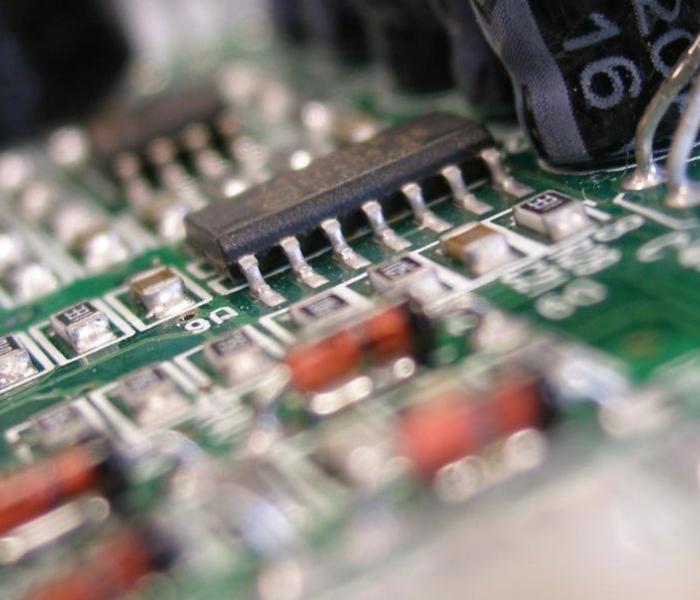Lectures & Workshops
Engineering Lecture Series
Each spring and fall, the Engineering Department at SSU presents a series of colloquia on a wide range of engineering topics and trend of technologies. The talks are generally very high-level and designed for the general audience. The Engineering Colloquium was established in Fall 2006 and was initially sponsored by former Agilent Technologies (now Keysight Technologies) and local industries.
Days & Dates: First and Third Thursday of every month
Zoom ID:
https://SonomaState.zoom.us/j/87287592076, Passcode: 2009A
and/or Cerent Engineering Science Complex, Salazar Hall 2009A, Campus Map
Lecture: 4:00 to 5:00 p.m. including Q &A
Attendance is open to students, faculty and staff of SSU and other members of the community, in general. A parking permit is required to park on campus, and is available for $5.00 at machines in the parking lots. Talks are otherwise free.
For more information, please contact the Engineering Department at (707) 664-2030 or [email protected].
Roger, It’s Just Test Equipment
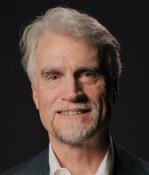
Mr. Roger Nichols
Retired Engineering Manager of Keysight Technologies
Salazar Hall 2009A
Thursday, September 4, 2025
Abstract: “Roger, it’s Just Test Equipment”: Lessons From Four Decades of Engineering 1985: the year introducing both Microsoft Windows and the GNU Manifesto; 2025: the year of GPT4.5 and injectable pacemakers. This talk is for those entering or about to enter the technical fields. It will focus on a few lessons learned in those intervening four decades. The lens and perspective are from a career not in one of the big visible tech firms, but in the technology of measurement and numerical analysis. Such has allowed a small-town boy to get direct and more objective exposure to wider variety of some of the more visible technical innovations of those forty years.
Bio: Electrical Engineering from the University of Colorado in 1985 and worked in design and measurement technology with focus on the mobile wireless industry ever since. He spent the last ten years of his career as the 5G, and then 6G Program Manager for Keysight Technologies, Inc. ; and for the last four years of his career he was a member of the FCC Technological Advisory Council. He worked on every wireless generation since 1G doing engineering and management of projects, programs, and departments, in R&D, marketing, and manufacturing as part of Hewlett-Packard, Agilent, and Keysight.
Optical filters for free-space optical communications applications
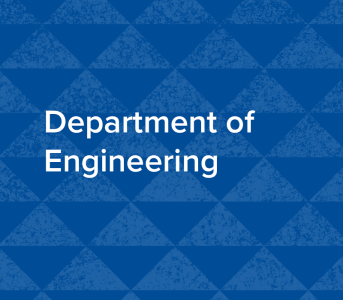
Mr. Andy Hulse
Principal Engineer, Research and Development, Viavi Solutions, Inc.
Salazar Hall 2009A
Thursday, September 18, 2025
Bio: Andrew has been active in the thin-film optics industry since the late 1990’s, and in that time has had many roles in the production, development, design and automation of thin film manufacturing. He has worked in telecommunications, sensing, and laser applications, and is particularly proud of his work on the MicroNIR spectrometer. Andrew received his BS and MS in electrical and computer engineering from UC Davis.
A Brief History of Electrical Engineering
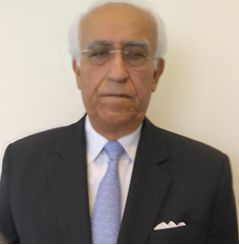
Dr. Mahmoud Noorchashm
Retired MTS, AT&T Bell Laboratories
Salazar Hall 2009A
Thursday, October 2, 2025
Abstract: Expedition in pursuit of protection, exposed humans to a mysterious phenomenon in nature, electricity. His strong sense of curiosity enabled him to develop an understanding along with technology that became an essential part of his life support.
In this talk we pursue the discovery, progress in understanding, and engineering of electricity in various fields.
Bio: Dr. Mahmood Noorchashm has been active in Network Performance Research and Standards at AT&T Bell Laboratories. He has also done significant work in Neural Network design and simulation. His main interest after retirement has been in Neuroscience and AI. He taught at Penn State, Abadan Institute of Technology and Pahlavi University in Iran. He earned his M.Sc. and PhD from the University of Pennsylvania in Philadelphia.
The Rise of “God-like AI”: Power, Ethics, and Human Destiny
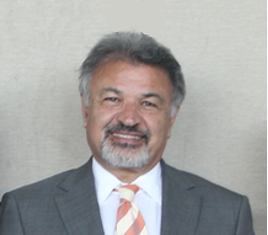
Dr. Mohsen Attaran
CSU Bakersfield, CA
Salazar Hall 2009A
Thursday, October 16, 2025
Abstract: This presentation explores the rise of “God-like AI”—ultra-intelligent systems with capabilities that could surpass human cognition and decision-making. It highlights how rapid advances in artificial general intelligence (AGI), machine learning, and neural networks may lead to the creation of autonomous entities that can influence economies, governments, and societal values. Drawing on insights from Ray Kurzweil, Nick Bostrom, and others, the talk examines potential benefits such as medical breakthroughs, climate solutions, and enhanced creativity. However, it also addresses risks including loss of human agency, algorithmic bias, mass surveillance, and existential threats. Ethical challenges, including value alignment, control mechanisms, and AI governance frameworks, are discussed. Ultimately, the presentation calls for proactive policy, interdisciplinary collaboration, and inclusive global dialogue to ensure that God-like AI serves humanity rather than dominates it.
Bio: Dr. Mohsen Attaran is an award-winning professor, researcher, and entrepreneur. A Ph.D. graduate in Systems Science from Portland State University, he is the 2004–05 Millie Ablin Outstanding Professor of Management at California State University, Bakersfield. He has authored over 140 peer-reviewed papers, four books, and ten commercial software packages, with nearly 10,000 citations. His work has appeared in top-tier journals, including Journal of Business Research, Information & Management, and Harvard Business Review.
Dr. Attaran has served as an international educator, consultant to Fortune 1000 companies, and president of a national educational institute. He is the founder of IES, Inc., a web and mobile development firm that has supported thousands of nonprofits and businesses for over 25 years. He also launched several ventures in telehealth and digital innovation. Recognized with multiple teaching and service awards, he was named Emeritus in 2019 for his contributions to academia and the global community.
Smart Materials and Artificial Muscles
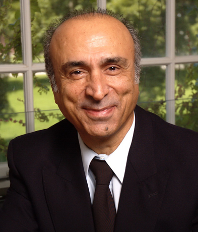
Dr. Mohsen Shahinpoor
Salazar Hall 2009A
Thursday, November 6, 2025
Abstract: Discussed are Ionic Polymer Conductor Nano-Composite Materials (IPMCs and IPCNCs) as Distributed Nanosensors, Nanoactuators, Nanotransducers, Energy-Harvesters, and Artificial Muscles. The fundamental theories are discussed, and several video demonstrations of ionic polymer-metal nano-composites and artificial soft, biomimetic robotic muscles are presented. Some biomedical applications are also discussed.
Bio: Professor Mohsen Shahinpoor has served as a Chaired Professor and Professor Emeritus and Research Director at the Department of Mechanical Engineering of the University of Maine College of Engineering. He has also served as the Richard C. Hill Chaired Professor and Professor of Biomedical Science and Engineering at the University of Maine. He has also served as director of the Advanced Robotics Laboratory, which focuses on Smart Materials, Artificial Muscles, Tissue Engineering, Manufacturing, and Advanced Biomedical Engineering and Robotic Surgery, at the University of Maine. He is also actively involved in research and development in biomimetics, soft and flexible robotics, as well as humanoid robots, smart biomimetic wearable robotic braces, electroactive materials, artificial muscles, and ionic polymer metal composites (IPMCs) as soft sensors and actuators. He has also been active in promoting biomimetic humanoid robots equipped with human-like consciousness and digital immortality for the future.
Since (Not If) AIs Will Rule Us, Let's Make Them Nice To Us
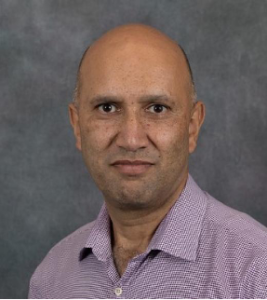
Dr. Ian Davidson
Professor of Computer Science, University of California - Davis
Salazar Hall 2009A
Thursday, November 20, 2025
Abstract: It is inevitable that AIs will soon be making many life-altering decisions on us. Because of this, we need to ensure their behavior is guided by human values—a challenge widely known as the AI Alignment problem. I'll discuss our work on fairness and explanation alignment, presenting both theoretical and experimental results developed with collaborators, particularly our medical center. Our research has focused on classic tasks like outlier detection, classification and clustering for images, as well as more recent work involving large language models. Underlying this research is a common fundamental set of questions of how to encode constraints and extract constraints into/from deep learning. I'll conclude by discussing the need to explore alignment beyond fairness.
Bio: Prof. Ian Davidson has been a Professor of Computer Science and the University of California - Davis since 2007. In the 2000s he focused on adding constraints to machine learning algorithms particularly clustering, in the 2010s he focused on tensor decomposition and transfer learning. After a 2018 sabbatical stay in France (where someone asked him what was the ethical implications of his work) he has focused on making AIs more ethical. He also works with domain experts to apply his work to problems of social significance in particular neuroscience applications. This work is funded by gifts from Google and Intel and grants from the National Science Foundation (NSF), The Office of Naval Research (ONR) and The National Institute of Health (NIH).
Past Lectures
| Date | Speaker | Speaker Affiliation | Lecture Title |
|---|---|---|---|
| Mr. Tim Wang-Lee | Application Engineer Keysight Technologies, Santa Rosa, CA | Signal Integrity and How It Fits in Your Career | |
| Dr. Don Estreich | Lecturer Engineering Science Department, Sonoma State University, Rohnert Park, CA | Why Did Silicon Valley Develop in the San Francisco Bay Area Instead of the East Coast? | |
| Dr. Sergio Canavati | Assistant Professor School of Business and Economics, Sonoma State University, Rohnert Park, CA | Product Platforms, Firm Processes, and Firm Performance | |
| Dr. Xiaorong Zhang | Assistant Professor Computer Engineering, San Francisco State University, San Francisco, CA | Toward the Next-Generation Neural-Controlled Artificial Limb | |
| Dr. Sudhir Shrestha | Assistant Professor Engineering Science Department, Sonoma State University, Rohnert Park, CA | Smart Sensing Systems and Analysis of Exhaled Breath for Detecting Diseases | |
| Mr. Peter Carlson | Chief Technical Officer HydroPoint Data Systems, CA | How Technology Helps Save the World's Most Valuable Resource | |
| Mr. Mark Baldassari | Director of Codes and Standards Enphase, Petaluma, CA | Photovoltaic Microinverter Systems | |
| Mr. Mohammad Salah | R&D RF Engineer National Instruments, Santa Rosa, CA | Building a Software Defined Radio Application in 7 min | |
| Dr. Erkin Şeker | Assoc. Professor EE Department, UC Davis, Davis, CA | Gold Foams as Advanced Biomedical Device Coatings | |
| Mr. Rob Rowlands | Senior Account Manager Gap Wireless | IoT Testing Challenges | |
| Dr. Dennis Derickson | Chair EE Department, Cal Poly San Luis Obispo | Lidar Solutions Using Vernier-Tuned Distributed Bragg Reflector Lasers | |
| Mr. Richard Halstead | Founder, President, and Chairman Empire Magnetics Inc. | The Humble Electric Motor, Enabling Science and Technology | |
| Dr. Marek Mierzwinski | R&D Engineer Device Model Development, EEsof Division, Keysight Technologies | Practical Aspects of Modeling Complex Analog Behavior in Modern Circuit Simulators | |
| Dr. Yin Ye | Assistant Professor EE Dept, San Francisco State University | Power Electronics, Electric Motor Drives, MACAUTO | |
| Dr. Patrick Pfeffer | Sr. Director of Growth Strategy and Venture Investments Juniper Networks | Why We Invest in Startups | |
| Mr. Chris Stewart | President/COO & Co-Founder Pocket Radar & Invention Planet | Starting a Successful Tech Company | |
| Dr. Birsen Sirkeci-Mergen | Associate Professor EE Dept, San Jose State University | Communication and Signal Processing | |
| Dr. Brendan Hamel-Bissell | Assistant Professor ES Dept, SSU | VCSEL-based Multimode Fiber Optics for Datacenters and Supercomputers | |
| Mr. Patrick Harper | VP & General Manager Technology Supply Chain, Keysight Technologies | Global Technology Supply Chains: What they are and why you need to know about them | |
| Dr. Ahmed Amer | Associate Professor Department of Computer Engineering, Santa Clara University, Santa Clara, CA | Sustainable Storage: Approaches to Efficient and Practical Storage Reliability at Scale |


